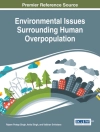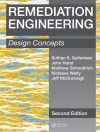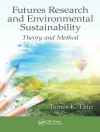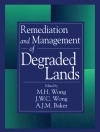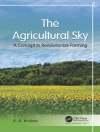An authoritative guide to the essential techniques and most recent advances in urban remote sensing
Techniques and Methods in Urban Remote Sensing offers a comprehensive guide to the recent theories, methods, techniques, and applications in urban remote sensing. Written by a noted expert on the subject, this book explores the requirements for mapping impervious surfaces and examines the issue of scale. The book covers a range of topics and includes illustrative examples of commonly used methods for estimating and mapping urban impervious surfaces, explains how to determine urban thermal landscape and surface energy balance, and offers information on impacts of urbanization on land surface temperature, water quality, and environmental health.
Techniques and Methods in Urban Remote Sensing brings together in one volume the latest opportunities for combining ever-increasing computational power, more plentiful and capable data, and more advanced algorithms. This allows the technologies of remote sensing and GIS to become mature and to gain wider and better applications in environments, ecosystems, resources, geosciences, geography and urban studies. This important book:
* Contains a comprehensive resource to the latest developments in urban remote sensing
* Explains urban heat islands modeling and analysis
* Includes information on estimating urban surface energy fluxes
* Offers a guide to generating data on land surface temperature
Written for professionals and students of environmental, ecological, civic and urban studies, Techniques and Methods in Urban Remote Sensing meets the demand for an updated resource that addresses the recent advances urban remote sensing.
Table des matières
Preface ix
Synopsis of the Book xiii
Acknowledgments xvii
About the Author xix
1 Urban Mapping Requirements 1
1.1 Introduction 1
1.2 Spectral Resolution Requirement 3
1.3 Temporal Resolution Requirement 6
1.4 Spatial Resolution Requirement 7
1.5 Linear Spectral Mixture Analysis of Urban Landscape 9
1.6 Summary 25
References 26
2 The Scale Issue 33
2.1 Introduction 33
2.2 Urban Land Mapping and Categorical Scale 34
2.3 Observational Scale and Image Scene Models 36
2.4 Operational Scale 40
2.5 Scale Dependency of Urban Phenomena 41
2.6 Summary 46
References 47
3 Building Extraction and Classification 55
3.1 Introduction 55
3.2 Building Reconstruction 56
3.3 Building Classification 64
References 66
4 Estimation and Mapping of Impervious Surfaces 69
4.1 Introduction 69
4.2 Methods for Impervious Surface Extraction 70
4.3 Case Studies 72
4.4 Summary 85
References 85
5 Land Surface Temperature Data Generation 91
5.1 Introduction 91
5.2 Generating Daily Land Surface Temperature by Data Fusion 95
5.3 Reconstructing Consistent LSTs at Landsat Resolution 111
References 121
6 Urban Heat Islands Modeling and Analysis 129
6.1 Introduction 129
6.2 Characterizing UHIs Using a Convolution Model 130
6.3 Object-Based Extraction of Hot Spots 138
References 146
7 Estimation of Urban Surface Energy Fluxes 151
7.1 Introduction 151
7.2 Data and Methodology 154
7.3 Heat Fluxes in Four Seasons 160
7.4 Heat Fluxes by LULC Type 162
7.5 Extreme Values of Heat Fluxes 164
7.6 Anthropogenic Heat Discharge 166
7.7 Summary 167
References 169
8 Cities at Night 175
8.1 Introduction 175
8.2 Detecting Urban Extent Changes 177
8.3 Spatiotemporal Pattern of Energy Consumption in United States and China 185
References 197
9 Urban Runoff Modeling and Prediction 201
9.1 Introduction 201
9.2 Estimating Composite CN and Simulating Urban Surface Runoff 205
9.3 Surface Water Quality and Urban Land-Cover Changes 212
References 227
10 Urban Ecology of West Nile Virus 233
10.1 Introduction 233
10.2 Research Background 235
10.3 Effect of Landscape and Socioeconomic Conditions on WNV Dissemination in Chicago 236
10.4 WNV-Risk Areas in Southern California, 2007-2009 247
References 260
11 Impacts of Urbanization on Land Surface Temperature and Water Quality 267
11.1 Introduction 267
11.2 Impact of Urbanization-Induced Land-Use and Land-Cover Change on LST 269
11.3 Simulating the Impacts of Future Land-Use and Climate Changes on Surface Water Quality 283
11.4 Summary 299
References 300
12 Remote Sensing of Socioeconomic Attributes 307
12.1 Introduction 307
12.2 Population Estimation Using Landsat ETM+ Imagery 312
12.3 Assessing Urban Environmental Quality Change 322
References 337
Index 343
A propos de l’auteur
QIHAO WENG, Ph.D., IEEE Fellow, is the Director of the Center for Urban and Environmental Change and a Professor at Indiana State University. He worked as a Senior Fellow at the NASA Marshall Space Flight Center from 2008 to 2009. Weng is currently an Editor-in-Chief of ISPRS Journal of Photogrammetry & Remote Sensing, and the Lead of GEO Global Urban Observation and Information Initiative.


